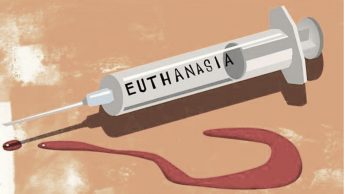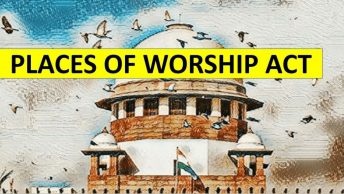India has seen the rise of multi-crore economic losses caused due to wilful defaults and scams. Individuals like Vijay Mallya are responsible for a loan default worth almost Rs. 9,000 crore, Nirav Modi and Mehul Choksi are responsible for the Rs.13,000 crore Punjab National Bank fraud. Apart from the default and the scam itself, the public would keep them in memory for fleeing the country after being accused of the same. While Mallya is currently residing in the United Kingdom, Nirav Modi and Choksi have moved from Hong Kong to London to New York to continually avoid prosecution.
In light of such economic offenders leaving the Indian soil to prevent arrests, the parliament has recently passed the ‘Fugitive Economic Offenders Bill’ to target such escapees and also ensure criminal prosecution of others in similar circumstances in the future. Prior to the Act, anyone who violates the India law and absconds could be proclaimed an offender under Section 82 of the Code of Criminal Procedure, and Section 83 of the same statute allowed for the attachment of the offender’s property such a proclamation.
Vijay Mallya’s attempts in the UK to salvage his properties from being confiscated has recently come to light with the UK High Court declaring that Mallya’s housing property in England could be seized for repayment of loans to the consortium of 13 banks that brought the case against him. Nirav Modi’s close relatives were summoned by the Special Court set up under the Fugitive Economic Offenders Act to present their case. If they fail to appear by the 25th of September, Modi’s property is set to be seized by the Court.
1. What are the existing provisions in India to deal with economic offenders?
The core component of the Fugitive Economic Offenders Act is its focus on dealing with the ‘economic fugitives’. While there are a plethora of laws applicable to economic crimes in India, as major lacking has been with respect to a redressal mechanism for recovery of losses caused by economic criminals. Despite the existence of laws and procedures to prevent abscondment, it has been fairly easy for people to get away with, and leave the country after committing economic crimes. While this Act falls short on the prevention of abscondment itself, it does satisfactorily create a procedure for loss recovery by providing for almost instant property attachment when the crime is taken cognizance of.
Currently a wide range of laws cover economic offences in India. The Indian Penal Code forms one of the foundational statutes which covers offences such as counterfeiting (Section 28), cheating (Section 420), fraud (Section 421) and breach of trust (Section 405). The identification of newer and more specific crimes has given raise to statutes such as the Prevention of Money Laundering Act. Other economic activities which involve accountability of individuals are covered under broad statutes like the Income Tax Act, Customs Act, Foreign Exchange Regulation Act, Foreign Contribution Regulation Act, Prevention of Corruption Act and Companies Act. The provisions under these statutes cover a wide array of cases, however, they focus on criminal remedies and does not necessarily create an avenue for recovery of the losses caused by scams and defaults.
2. Who is a ‘fugitive economic offender’?
A person against whom a warrant for ‘scheduled offences’ has been issued and has left India to avoid criminal prosecution, or while being abroad, refuses to return to India to face criminal prosecution is a fugitive economic offender.
The ‘scheduled offences’ included offences under the Indian Penal Code, the Prevention of Corruption Act, the Securities and Exchange Board of India Act, the Customs Act, the Companies Act, the Limited Liability Partnership Act and the Insolvency and Bankruptcy Code.
The total value involved in the offence should be more than one hundred crore rupees. The offence with the value involving less than the said amount would not be tried under the provisions of the Act. Finance Minister Piyush Goyal had justified the limit of one hundred crore rupees as a way to “catch the big offenders and not to clog the courts”. The Act also aims to cover individuals who violate laws concerning tax, black money, benami transactions & property and financial corruption apart loan defaulters and fraudsters. The Act aims to confiscate property of individuals who violate its provisions.
For example, there has been an arrest warrant issued against diamantaire Nirav Modi and Mehul Choksi for an alleged fraud of 13,000 Crores. The directors of Gitanjali Gems, Gilli India, Nakshatra Brands and Firestar Diamond companies allegedly entered into a criminal conspiracy with the employees of PNB to issue Letters of Undertaking (LoUs) that ultimately helped them give effect to the fraud. This makes them accused under Section 120B (criminal conspiracy), Section 420 (cheating) under the Indian Penal Code, and provisions under of the Prevention of Money Laundering Act. Therefore, when the said persons fled the country, they became Fugitive Economic Offenders.
3. Who are the ‘persons’?
According to the Act ‘person’ means to include natural persons such as individuals, undivided Hindu families and legal persons such as companies, partnerships, agencies and associations.
4. Which Court tries the offences under the Act?
The offences under the Act would be tried under the Court of Sessions designated as the Special Court under Section 43 (1) of the Prevention of Money Laundering Act, 2002. A Special Court is designated by the Central Government in consultation with the Chief Justice of the High Court. Therefore, it is being said that there are no substantial costs involved on the aspect of establishing a judicial machinery as the forum is already in place.
Application for declaration of ‘fugitive economic offender’: The Director or Deputy Director, appointed by the Central Government, may file an application in the Special Court if they have a reason to believe, which should be recorded in writing, that on the basis of material in their possession, a person is a fugitive economic offender. Along with the reasons to believe so, the application must also contain available information, if any, as to the whereabouts of the fugitive economic offender. Further, a list of properties that is believed to be the proceeds of crime including any Benami properties situated in India or abroad should be recorded. A list of persons who may have interest in these properties should also be submitted to the court.
Attachment of Property: With the permission of the Special Court, the Director or Deputy Director can make an order in writing to attach the property. Even before filing the application, Director or Deputy Director may by an order in writing attach the property if there is a reason to believe that the property is proceeds of crime, or belongs to a fugitive economic offender, and if there is a possibility of it being unavailable at the time of confiscation. While this attachment lasts 180 days, unless extended by the Special Court, the parties interested in the property are still entitled to claim their interest in it.
When is someone named a fugitive economic offender?
Once a notice of offence is given to an offender, they have upto 6 weeks to from the date of notice to appear in front of the Special Court. Failure to adhere to this time limit would lead to the Special Court considering the case of the offence and labelling the offender a Fugitive Economic Offender.
Special Court under PMLA in Mumbai has given 6 weeks time for Vijay Mallya to appear before the Court. Failure to appear before the Court before August 27 would risk Mallya being declared a Fugitive Economic Offender.
5. What happens when a person is named a fugitive economic offender?
Once a person is named a fugitive economic offender, the Government has the right to confiscate property it believes to be ‘proceeds of the crime’ even if other investors have interests in it. This power is contained in Section 10 of the Act. The State, therefore, gains control over the property when the offender flees the country to avoid prosecution.
Further, Section 11 of the Act ‘disentitles’ the offender from filing a civil claim in courts regarding his/her confiscated property.
6. What is the procedure of survey, search and seizure?
There are three different heads that can be located under the Act that relates to search of a place/ person and seizure of record or property. Those are discussed as follows:
- Power of Survey: Under the power of survey, the Director or any other officer authorised by the Director can may request any proprietor, employee or any other person who may be present at that time to afford them facility to verify the record relating to proceeds of crime and provide any information that may be relevant for the proceedings under the Act. The officer also has powers to record statements relevant to the proceedings under the Act from persons present at the property. Although generally the officer is not conferred the power to seize evidence at the time of survey, she can do so if upon information obtained during the survey, she is satisfied that any evidence shall be or is likely to be concealed or tampered with.
- Power of Search and Seizure: This power is wider than the power of survey. Conspicuously, under the provision of the Act, the Director or Deputy Director need not request for permission from proprietor, employee or any other person who may be present in the property to conduct search and seizure. The Director or Deputy Director can conduct search and seizure if they have a reason to believe, which should be recorded in writing, that any person may be declared as a fugitive economic offender; is in possession of any proceeds of crime; is in possession of any records which may relate to proceeds of crime; or, is in possession of any property related to proceeds of crime. The Director or Deputy Director may search building, place, vessel, vehicle or aircraft where he has reason to suspect that such records or proceeds of crime are kept. She may also go to the extent of breaking open the lock of any door, box, locker, safe, almirah or other receptacle when the keys are not available. And finally, seize any record or property found as a result of the search.
- Search of Persons: An authority authorized by a governmental order may conduct a personal search and effect seizure if he/she has reason to believe, which should be recorded in writing, that any evidence is discoverable from the person for the purposes of the Act. The search shall be conducted in the presence of at least two witnesses. The person has a right to ask the search to be taken place in the presence of a Gazetted officer or a Magistrate. If the Magistrate finds no reasonable ground to conduct search and seizure, she shall immediately discharge the person.
7. Are there possibilities of constitutional challenges to the Act?
If a person is declared a Fugitive Economic Offender, under Section 14 of the Act, any Court or Tribunal may disallow such person from putting forth civil claims and defending any civil claims. The Constitutional bench of the Supreme Court in Anita Kushwaha v. Pushap Sudan has declared the access to justice as a fundamental right guaranteed under Article 14 and Article 21. There does not seem to be a convincing reason for disallowing to put forth or defend ‘any’ civil claim, which might be related to some other laws, thereby bringing possibilities of a challenge on the vires.







